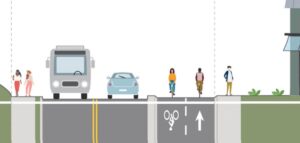Because I consider him an honorable mentionee for Quintessential Misanthrope, I am almost embarrassed by my affinity for Bertrand Russell. Almost.
The Why Work? site has his 1932 essay, In Praise of Idleness, in which there are so many nuggets, you’ll have a hard time choosing just one to post on your blog. But one thread from then to now – from the reality of his perceptions about work to what should be ours – is the perspective shift. If you took a cross section sample from their (early industrial) fascination with machines and what they could do for us and compared it to one from 2009, we should see elements of cliche and fatigue with the machine age, not to mention some not-so-subtle exasperation.
Modern technique has made it possible to diminish enormously the amount of labour required to secure the necessaries of life for everyone. This was made obvious during the war. At that time all the men in the armed forces, and all the men and women engaged in the production of munitions, all the men and women engaged in spying, war propaganda, or Government offices connected with the war, were withdrawn from productive occupations. In spite of this, the general level of well-being among unskilled wage-earners on the side of the Allies was higher than before or since. The significance of this fact was concealed by finance: borrowing made it appear as if the future was nourishing the present. But that, of course, would have been impossible; a man cannot eat a loaf of bread that does not yet exist. The war showed conclusively that, by the scientific organisation of production, it is possible to keep modern populations in fair comfort on a small part of the working capacity of the modern world. If, at the end of the war, the scientific organisation, which had been created in order to liberate men for fighting and munition work, had been preserved, and the hours of the week had been cut down to four, all would have been well. Instead of that the old chaos was restored, those whose work was demanded were made to work long hours, and the rest were left to starve as unemployed. Why? Because work is a duty, and a man should not receive wages in proportion to what he has produced, but in proportion to his virtue as exemplified by his industry.
This is the morality of the Slave State, applied in circumstances totally unlike those in which it arose. No wonder the result has been disastrous.
It’s a highly informed discussion of surplus and leisure, all the while however, as certain elements of our fidelity to work remains unchanged, even in the face of the gargantuan contributions of machines of all sorts, it is also the story of our wastefulness, growing ignorance, passive recreations… in a word, how western civilization has become unsustainable. Mostly because of being too tired to understand our over-reverence for hard work.
The wise use of leisure, it must be conceded, is a product of civilisation and education. A man who has worked long hours all his life will become bored if he becomes suddenly idle. But without a considerable amount of leisure a man is cut off from many of the best things. There is no longer any reason why the bulk of the population should suffer this deprivation; only a foolish asceticism, usually vicarious, makes us continue to insist on work in excessive quantities now that the need no longer exists.
And eventually he gets to the two ways in which we have ultimately been misled about “moving matter about” which has led us to the array of choices otherwise known as today.
The fact is that moving matter about, while a certain amount of it is necessary to our existence, is emphatically not one of the ends of human life. If it were, we should have to consider every navvy superior to Shakespeare. We have been misled in this matter by two causes. One is the necessity of keeping the poor contented, which has led the rich, for thousands of years, to preach the dignity of labour, while taking care themselves to remain undignified in this respect. The other is the new pleasure in mechanism, which makes us delight in the astonishingly clever changes that we can produce on the earth’s surface.
Ouch. The new pleasure in mechanism… it sounds so quaint. What has this sly little combination turned into? Now that we are astonishingly terrified about the changes we have produced on the earth’s surface, to what do we turn to turn things around? Machines. Can I make this sound any more foolish? The crushing waste of time, resources and intellect involved in the creation of our present crisis can be no better summed up than in the last couple of lines of this A.O. Scott review of the new transformers movie.
But that’s the perverse genius of Michael Bay. Despite the tediousness of his stories and inanity of his visual ideas, he always manages to keep you laughing and shaking your head in disbelief at the outlandishness of his cinematic spectacles, with their orange explosions, armament fetishism and even their noxious stereotypes. The man just wears you out and wears you down, so much so that it’s easy to pretend that you’re not ingesting 2 hours and 30 minutes of warmongering along with all that dumb fun.
Maybe my dislike of Russell is itself a kind of misanthropy, but in reverse, turned against just him for calling us all out so clearly.
Four. Hours. A. Day.

